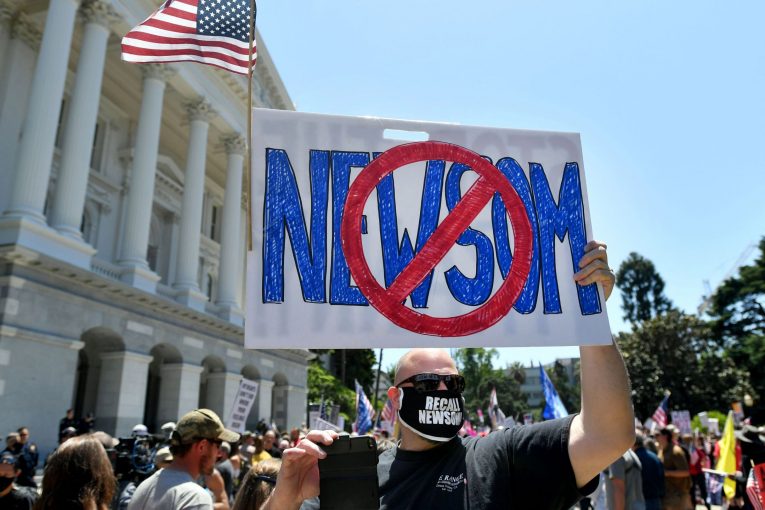

By Jess Taylor
The California Secretary of State’s office announced that the petition to recall Governor Gavin Newsom has received enough signatures to set a recall election.
This is the sixth attempt by Republicans to have him recalled since he took office in 2018. Organizers for the recall needed to gather 1,495,709 valid signatures for the petition to qualify, and received 1,626,042.
Back in March, Newsom said in a press conference, “The reality is, it looks like it’s going on the ballot. We will fight it, we will defeat it. At the same time, it’s not going to keep me from focusing on my job 24/7.”
Common complaints listed for the original recall by Californian conservatives included issues towards high taxes, layers of regulation and policies in favor of immigrants. It was written just before the pandemic hit and does not mention the governor’s COVID-19 restrictions.
Rescue California, an activist group that has pushed the recall petition, said Newsom’s policies of closing businesses, schools and places of worship have fueled their campaign against the governor.
Many candidates are announcing their run for governor, like Olympic Gold Medalist Caitlyn Jenner, former San Diego Mayor Kevin Faulconer and John Cox who previously lost to Newsom in the 2018 election.
Though candidates are preparing for their campaigns for the recall election, many Democrats disagree with the recall. Senator Elizabeth Warren, Cory Booker, Bernie Sanders and Alex Padilla announced their support for the anti-recall campaign.
Back in November, Newsom was spotted at a dinner party intermingling with friends without a mask after telling Californians to avoid socializing in groups to minimize the spread of the virus. His actions upset Californians across the state, where recall signatures were collected within the month.
The pandemic put people across the country on edge, but California lost 1.5 million jobs and unemployment hit a high of eight percent. With the accumulation of stress, Californians began to drastically disapprove of Newsom’s governing.
Erin Lehane is a Sacramento political consultant who works with unions. She said, “California’s politics are far left, but the state is predominantly blue-collar. Those working families– those essential workers who have been out there this whole crazy year– will decide the vote in this recall.”
Retired Republican sheriff’s sergeant Orrin Heatlie is the lead proponent of this recall attempt. Originally, Heatlie disapproved of the governor’s policies on immigration and the death penalty. Judge James P. Arguelles presiding over the hearing in Sacramento Superior Court gave Heatlie and his California Patriot Coalition an extra four months to pass the petition due to the pandemic making it difficult to gather signatures.
For the recall to qualify for the ballot, signatures from 12 percent of voters in the last election for governor are needed. The extra four months given to acquire signatures has been argued to be the only reason the recall has been accepted.
Back in March when the governor delivered his State of the State address, he stated that the recall efforts were a power grab by right-wing extremists trying to game the political system.
California has since begun to recover from the pandemic, where over 30 million doses of the vaccine have been administered to Californians. Though Newsom’s approval rating plummeted in the thick of quarantine, a recent poll by the Public Policy Institute of California indicated about 56 percent of likely voters do not support the recall.
As of now, voters who signed the petition have 30 days from April 26 to withdraw their names from the petition. Moreover, state administrative and legislative leaders have additional time to figure out cost estimates for the election, which is expected to cost over 100 million dollars. The date for the election also needs to be set and is anticipated to be in the fall.
California voters would be asked if Newsom should be recalled. Over 50 percent of the votes must be in favor for the recall, and if so, the candidate with the most votes will become the new California governor.
Jess Taylor is in her senior year at UC Davis from a small town called Wheatland. She is finishing her studies in English and Human Rights.